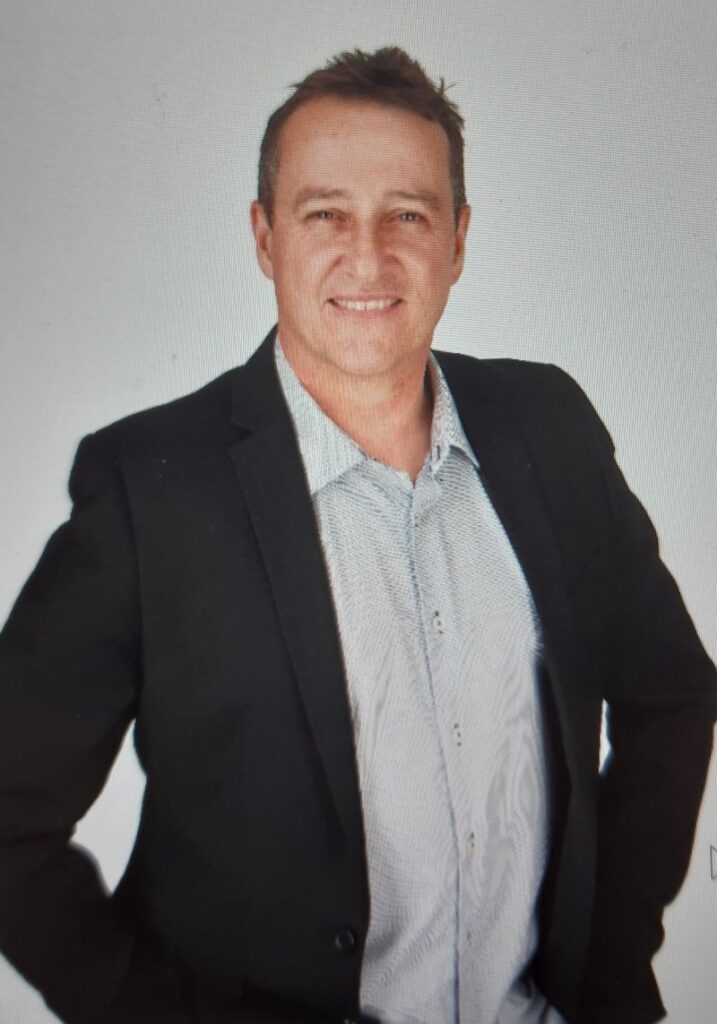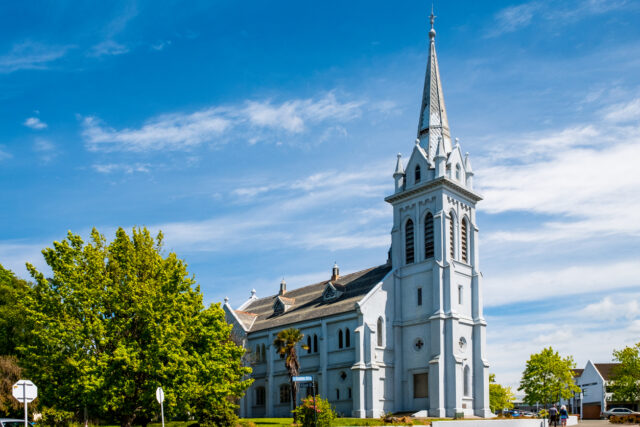By Steve Mooney
Even before Owen Jackson became elected as a councillor at the Timaru District Council in New Zealand’s South Island, he had been involved in developing public infrastructure for his community.
Jackson, whose daytime job is as a breakfast host and program director at Port FM radio in the South Island, was previously involved in developing a new playground at the iconic Caroline Bay, and it was there that he had his first experience in the challenges of asset management.
“We had a very old playground there which was not really fit for purpose,” said Jackson.
“And I came up with the idea of building a totally accessible playground which was fun which would also tell our stories locally, but also be more functional that the one we had.”
Jackson was involved in creating a committee and in partnership with the Timaru District Council went about the project, from the fundraising to the design and construction.
After raising NZ$3 million from the community, grants and with a contribution from the council Jackson was part of a joint committee which delivered the playground project, which recently won an award for New Zealand’s best playground.
“I was already passionate about local issues anyway, and in my role with radio I had a lot of interaction with the community,” he said.
“But the experience gave me an understanding of how council works, with tenders and procurement and the idea of the social infrastructure requirements for the community.”

Owen Jackson, Elected Member for Timaru District Council
Since completing the playground project Jackson has been elected to the Timaru council and has also recently completed the IPWEA online course Infrastructure Asset Management Planning for Elected Members.
“I would love to have done that course before I did the project,” he said.
“It would have made all the difference, because obviously we were starting with a blank piece of paper.
“For example, I didn’t know anything about the importance of what was under the ground, all the pipes and the other infrastructure which we had to build on top of to make it a great place and also future proof it.”
The IPWEA course, said Jackson, helped him understand the role elected members play as “guardians of infrastructure” for their communities.
“As an elected member it’s your job to protect it, look after it, maintain it and make sure it’s meeting the requirements of the community,” he said.
“Infrastructure is the crux of your role as an elected member and if you don’t understand it and respect and don’t keep abreast of what’s going on with your infrastructure then you’re going to struggle and not be as effective an elected member as you could be.”
As an elected member, Jackson is now dealing with the challenge of “getting the balance right between providing the infrastructure you need to provide and keep the rates under control.”
One lesson he received was the example of an old theatre of more than 140 years old which had been closed in 2018 due to health and safety issues.
“The question was do we simply just do it up and get it open and fit for purpose, or do we take it a step further and look at how we improve the overall infrastructure at the south end of our town, which had been a bit neglected,” said Jackson.
Jackson was a proponent of including a refurbished theatre as part of a new heritage centre, which would also include the local museum.
“The idea was to incorporate the two together, and that would give us a really good heritage centre with a traditional Victorian theatre and a new museum,” he said.
“So we purchased the land around it and demolished buildings and got it all set up and went through two rounds of public consultation and got some funding to be shovel ready with a project which was going to reinvigorate that end of town, which is the oldest part with buildings which are heritage protected.”
The inspiration was the development at Oamaru, around 120 kilometres south, which had redeveloped its Victorian precinct into a significant regional tourist attraction which also hosts the annual Victorian Heritage Celebrations.
The Timaru proposal, however, was voted down by the council by a significant majority.
“What was said was that the public weren’t happy about shelling out $NZ44 million and felt there should be more prudent ways to get the theatre up and running,” said Jackson.
While Jackson is still in favour of the larger, more ambitious project, his experience with the playground project and what he has learned from the IPWEA course have given him a wider perspective and an ability to contextualise asset management decision making.
“That project divided the town, and while I thought that the best bang for the buck was to use government money for the larger project I do understand the argument about being prudent and keeping your community’s interests in mind when it comes to taking on debt,’ he said.
In his feedback on the IPWEA course, Jackson said he believed it should be a “mandatory requirement” for any new councillors coming into elected office.
“I was impressed by the content and the reminders about my stewardship role to make sure I get the best value possible for our local ratepayers,” he said.
“These were invaluable insights and reminders about the importance of asset management are my biggest takeaways from this course.”














